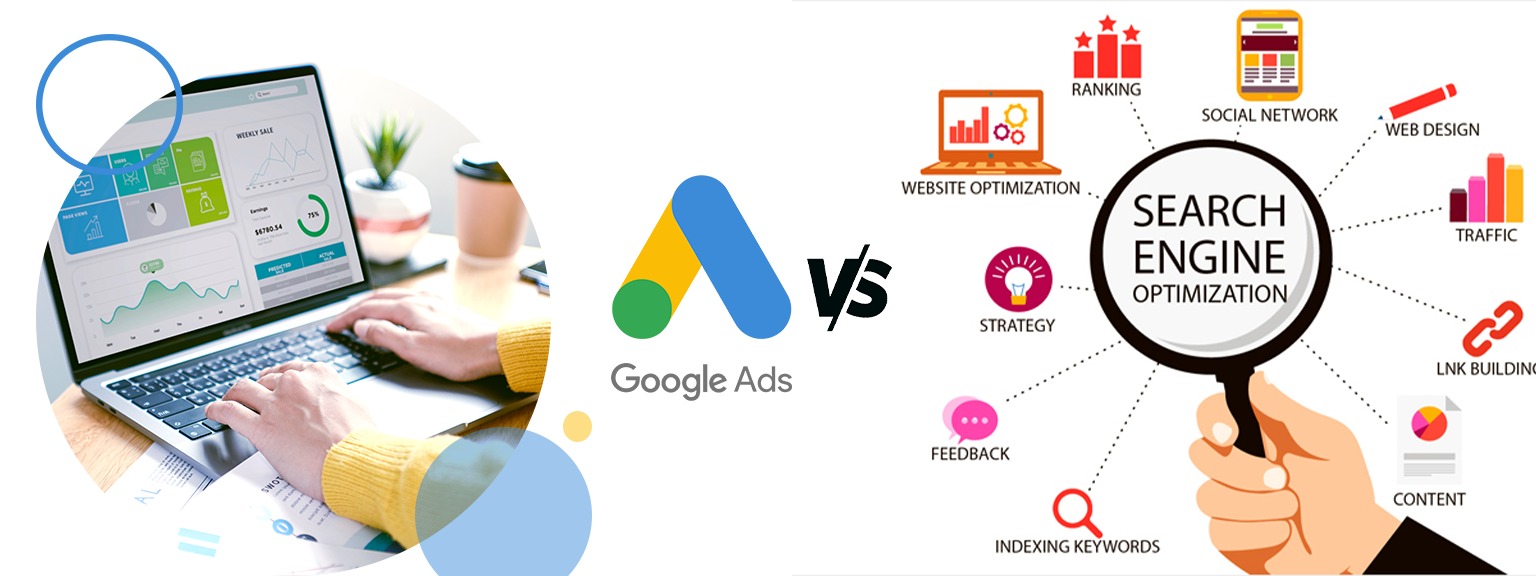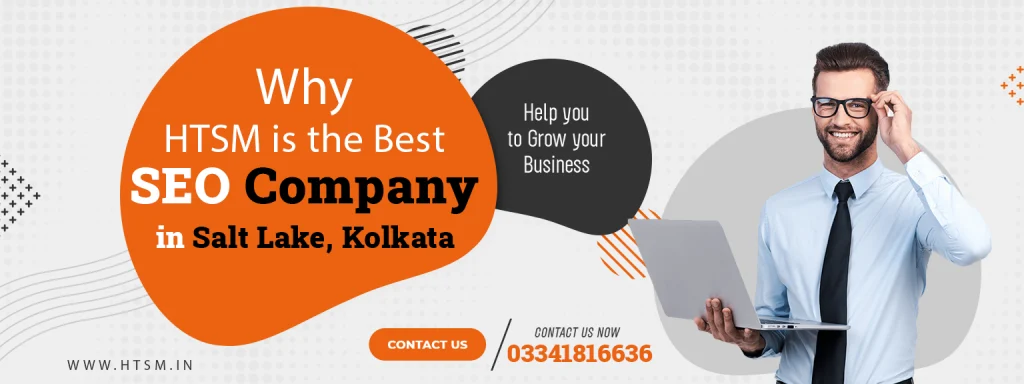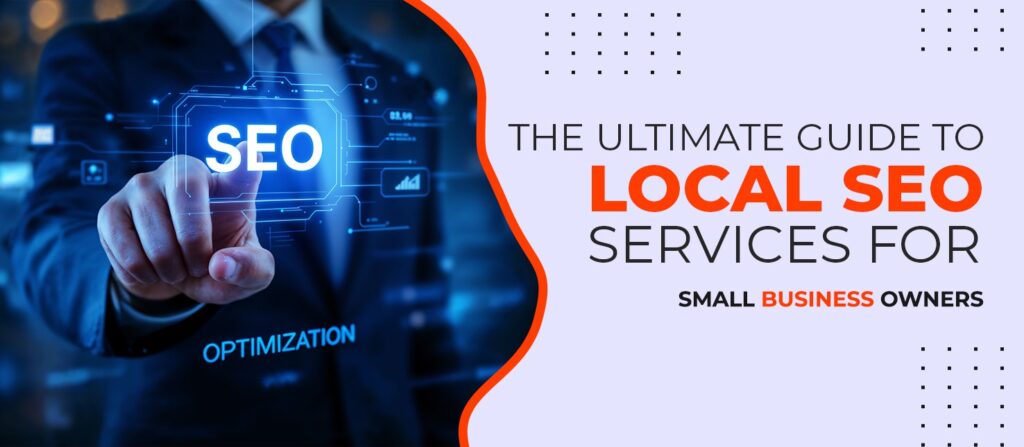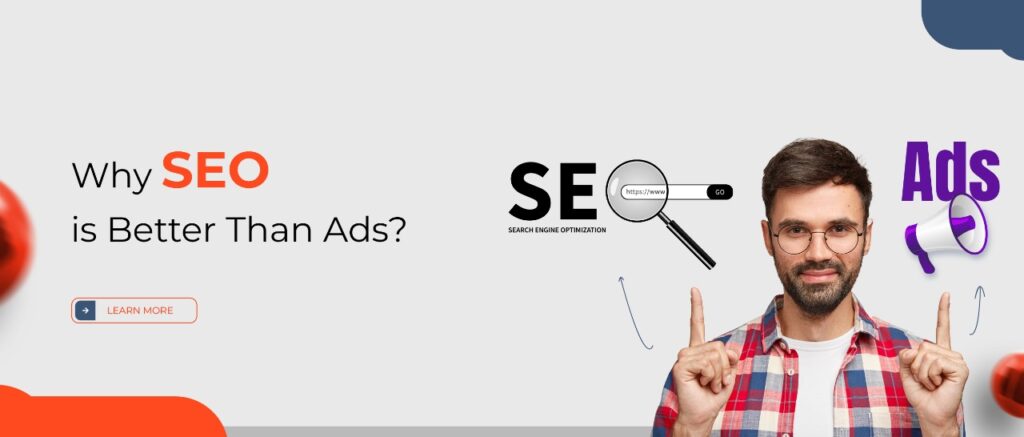Introduction:
Search engine optimization (SEO) and Google Ads (formerly known as Google AdWords) are two popular digital marketing strategies that businesses use to increase their online visibility and attract more customers. Both methods have their pros and cons, and choosing the right approach for your business depends on various factors. In this blog post, we will explore the differences between SEO and Google Ads and help you determine which one is better suited for your business needs.
What is Search Engine Optimization (SEO)?
SEO is the process of optimizing a website to improve its visibility on search engine results pages (SERPs) organically. This involves optimizing various elements of a website, including its content, meta tags, URLs, and technical aspects such as site speed and mobile-friendliness. The goal of SEO is to rank higher on SERPs for relevant keywords, thereby increasing organic (non-paid) traffic to a website.
What are Google Ads?
Google Ads, on the other hand, is an online advertising platform provided by Google that allows businesses to display ads on Google’s search results pages and other websites in the Google Display Network. Google Ads operates on a pay-per-click (PPC) model, where businesses bid on keywords and pay only when someone clicks on their ads. Ads can be displayed in various formats, including text, images, and videos.
Pros and Cons of SEO
SEO has several advantages for businesses:
Pros:
• Long-term results: SEO is a long-term strategy that can provide sustainable results over time. Once your website achieves a high rank on SERPs, it can continue to drive organic traffic and generate leads without ongoing payments.
• Cost-effective: Compared to Google Ads, SEO can be more cost-effective in the long run. Although it requires an upfront investment in optimizing your website, the ongoing costs are generally lower than Google Ads, as you don’t have to pay for each click.
• Credibility and trust: Organic search results are perceived as more credible and trustworthy by users compared to paid ads. Ranking high on SERPs can help establish your brand as an authority in your industry.
• Targeted traffic: SEO allows you to target specific keywords and demographics to attract relevant traffic to your website. This can result in higher conversion rates as you are reaching out to users who are actively searching for your products or services.
Cons:
• Time-consuming: SEO is not a quick-fix solution and requires ongoing effort and patience. It may take months or even years to achieve desired results depending on the competitiveness of your industry and keywords.
• Constant changes: Search engines regularly update their algorithms, which can affect your website’s rankings. Keeping up with these changes and adapting your SEO strategy accordingly can be challenging.
• Limited control: SEO relies on various factors such as search engine algorithms, user behavior, and competition, which are beyond your control. Achieving and maintaining high rankings may require constant monitoring and adjustments to your website.
Pros and Cons of Google Ads
Google Ads also has its share of advantages and disadvantages for businesses:
Pros:
• Immediate results: Unlike SEO, Google Ads can deliver immediate results as your ads can be displayed on SERPs within hours of setting up a campaign. This can quickly drive traffic to your website and generate leads.
• Flexibility and control: Google Ads provides businesses with extensive targeting options, allowing you to reach out to a specific audience based on keywords, demographics, location, and more. You also have control over your ad budget, ad formats, and ad placements.
• Measurable results: Google Ads provides detailed data and analytics that allow you to measure the performance of your ads, including clicks, impressions, conversions, and return on investment (ROI). This allows you to track the effectiveness of your campaigns and make data-driven decisions to optimize your ads for better results.
• Scalability: Google Ads allows you to scale your campaigns up or down based on your budget and business goals. You can increase your ad spend to reach a larger audience or reduce it if needed, giving you flexibility in managing your advertising budget.
Cons:
• Costly: Google Ads can be expensive, especially if you are targeting competitive keywords. You need to set a budget for your campaigns and pay for each click, which can quickly add up, and if not managed properly, it can result in high costs without guaranteed results.
• Ad fatigue: Users can become ad-blind or ad-fatigued, as they are constantly exposed to ads online. This can result in lower click-through rates (CTR) and conversion rates over time, which may require you to constantly optimize and update your ads to keep them effective.
• Dependency on Google: Google Ads relies on Google’s platform, and any changes in Google’s policies or algorithms can impact your ad performance. This means you may need to adapt and make changes to your campaigns based on Google’s updates.
Which is Better for Your Business?
The answer to this question depends on various factors, including your business goals, budget, industry, and target audience. Both SEO and Google Ads have their strengths and weaknesses, and the right approach for your business may be a combination of both. Here are some considerations to help you make an informed decision:
- Budget: If you have a limited budget, SEO may be a more cost-effective option as it does not require ongoing payments for each click. However, if you have a higher advertising budget and want immediate results, Google Ads can provide quick visibility and traffic to your website.
- Business goals: Consider your business goals when choosing between SEO and Google Ads. If you are looking for long-term sustainable results and want to establish your brand as an authority in your industry, SEO may be the better choice. However, if you have short-term goals such as launching a new product or promoting a limited-time offer, Google Ads can deliver immediate results.
- Competition: If you are in a highly competitive industry with many businesses vying for the same keywords, Google Ads can provide you with an advantage as you can bid for top positions on SERPs. SEO can also be effective in competitive industries, but it may require more time and effort to outrank your competitors.
- Target audience: Consider your target audience when deciding between SEO and Google Ads. SEO can be effective in reaching users who are actively searching for your products or services, while Google Ads allows you to target specific demographics, interests, and locations to reach a wider audience.
- Resources and expertise: SEO requires technical knowledge and ongoing effort in optimizing your website, creating quality content, and building backlinks. If you have the resources and expertise in-house, SEO can be a viable option. On the other hand, Google Ads requires expertise in keyword research, ad creation, and campaign management. If you don’t have the necessary skills or time, outsourcing your PPC campaigns may be necessary.
Conclusion:
In conclusion, both SEO and Google Ads have their advantages and disadvantages, and the best approach for your business depends on your specific goals, budget, competition, and resources. SEO is a long-term strategy that can provide sustainable results over time, while Google Ads can deliver immediate visibility and traffic to your website. It’s essential to evaluate your business needs and consider factors such as budget, competition, target audience, and expertise before deciding which method to prioritize or whether to use a combination of both. A well-thought-out digital marketing strategy that includes a combination of SEO and Google Ads can help you maximize your online presence and drive targeted traffic to your website, ultimately leading to increased leads and sales.





